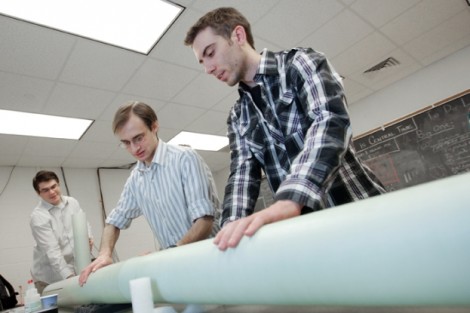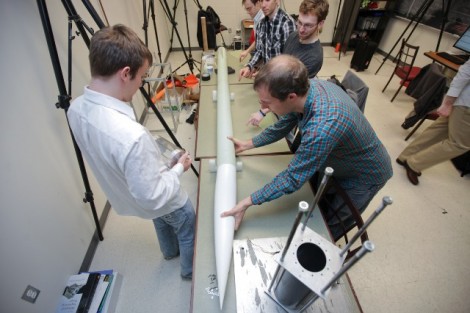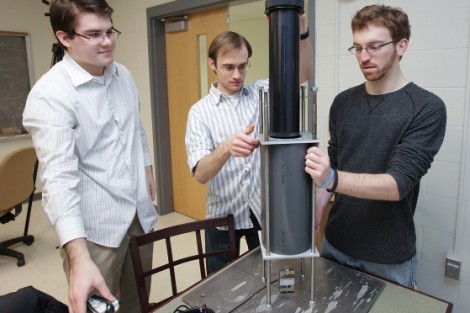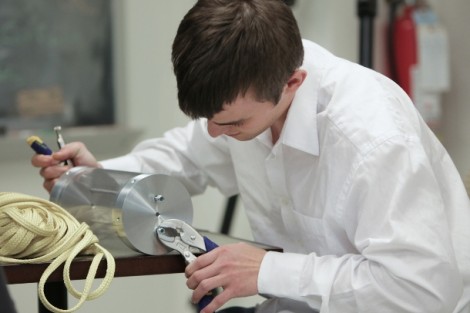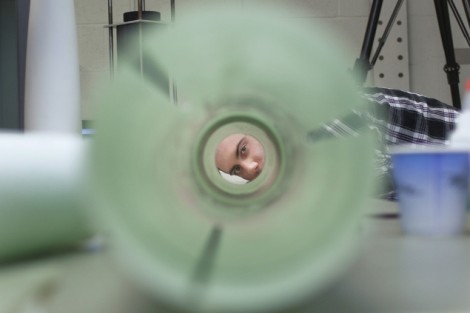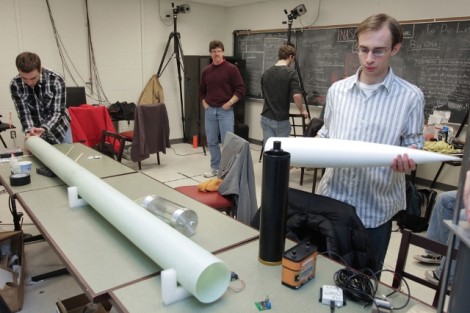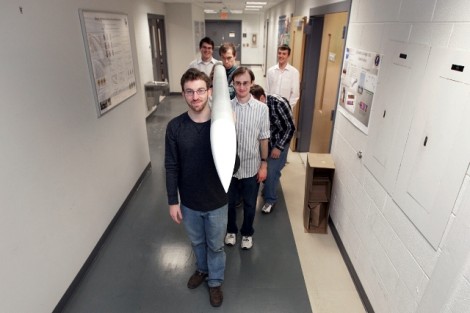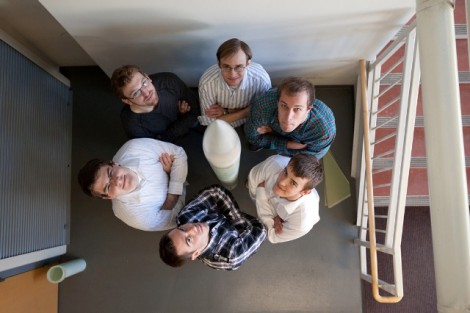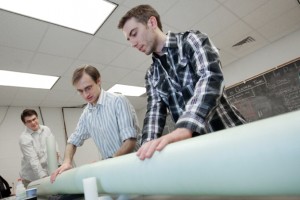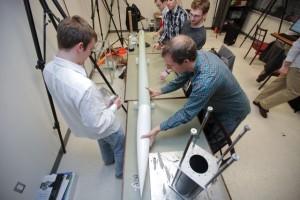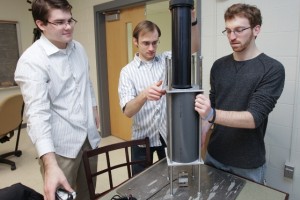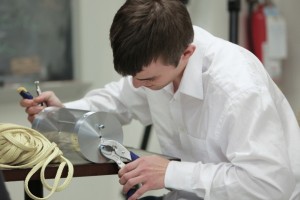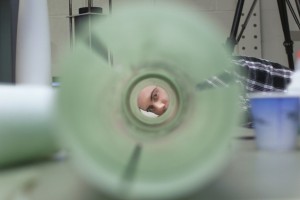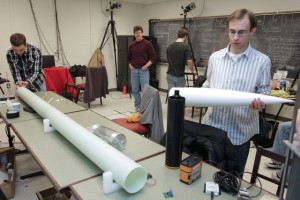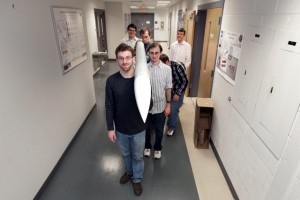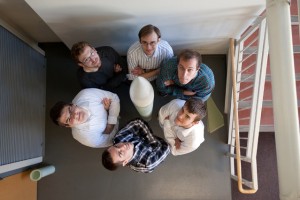Once he earns his degree in mechanical engineering, Andrew King ’11 (Lebanon, Pa.) wants to work for Boeing, with an eye toward the company’s space division.
With that goal in mind, it can’t hurt that he is getting valuable real-world experience designing and building a sophisticated rocket for a NASA rocketry challenge.
King is one of the members of Lafayette’s TeamRocket, which is entering a 10-foot-tall, five-inch-diameter rocket in the space agency’s University Student Launch Initiative. The project is the team’s mechanical engineering senior design capstone, and the process is being guided by Steven Nesbit, professor of mechanical engineering.
The winning team will receive a $5,000 award in the competition, which challenges student teams to outfit the rocket with instruments to measure pressure, temperature, and other atmospheric conditions at regular intervals during descent and return the data remotely to the team on the ground. The rocket’s payload will also include a global tracking system and an onboard camera.
“This competition has tested our design skills, forced us to learn new simulation techniques, helped us master project management skills, and allowed us to learn more concepts from our own discipline as well as different disciplines such as electrical engineering. It is not uncommon for each day to present us with new challenges, but we always find ways to overcome those challenges and improve our project,” King says.
The NASA challenge will draw more than 500 student rocketeers from 26 states. Lafayette is one of 33 college and university teams participating. On April 16, teams will launch their rockets from a farm near the Marshall Space Flight Center in Huntsville, Ala. The goal is for rockets to achieve an altitude of one mile, and a variety of awards will be presented for engineering skill and ingenuity.
“This competition has a strong focus on the industry practice of submitting a proposal and then reaching specific design milestones until the final product is delivered. In this way the rocket competition allowed me to hone my project management skills on a short-term project so that, once in industry, the learning curve for working on long-term projects will be less steep,” King says.
Lafayette’s team is at the initial stage of constructing the competition rocket, which must be launched successfully prior to a flight readiness review and safety inspection at the Marshall Space Flight Center this spring.
Construction of the rocket involves fabricating an airbrake system, integrating various sensors and electronics into the payload bay, and assembling the final rocket. The team used specialized software to help build the rocket. The program allowed the team to input various aspects of the design and then simulate a launch.
The team has been progressively testing each of the subsystems and the completed assemblies, and will travel to Maryland to conduct a full-scale rocket launch.
“It has been a good experience taking on a project that incorporates a lot of different aspects of engineering. The team has to design, test, and construct our rockets and some of the testing equipment before our final launch in April,” says Andy Feldman ’11 (Middletown, N.J.).
This is the first time that Lafayette has entered the rocket challenge, and none of the team members had previous experience working with high-powered rockets. Electrical engineer Jim Hansen ’75 of the Philadelphia Area Rocketry Association has provided the team with technical expertise and support. As the team’s mentor, Hansen has been aiding the group in rocket design, launch assistance, and safety education and compliance.
“Because this is the first time the school is doing this project, and because we are all relatively new to rocketry, simply gaining experience in building and flying rockets was an early challenge we had to overcome,” Feldman says.
The NASA challenge incorporates a community education requirement. TeamRocket has two educational engagement events planned: one with Easton Middle School and one through the Kids in Community program at Lafayette. Both of these programs aim to spark the interest of rocketry in young students while they participate in projects that help explain some basic principles about rockets.
Other team members include mechanical engineering seniors Ben Boyer (Lebanon, Pa.), Kevin McGough (Wallingford, Pa.), and Matt Pender (Cambridge, Mass.), and engineering studies major Jeff Duck ’12 (Lewisburg, Pa.).
